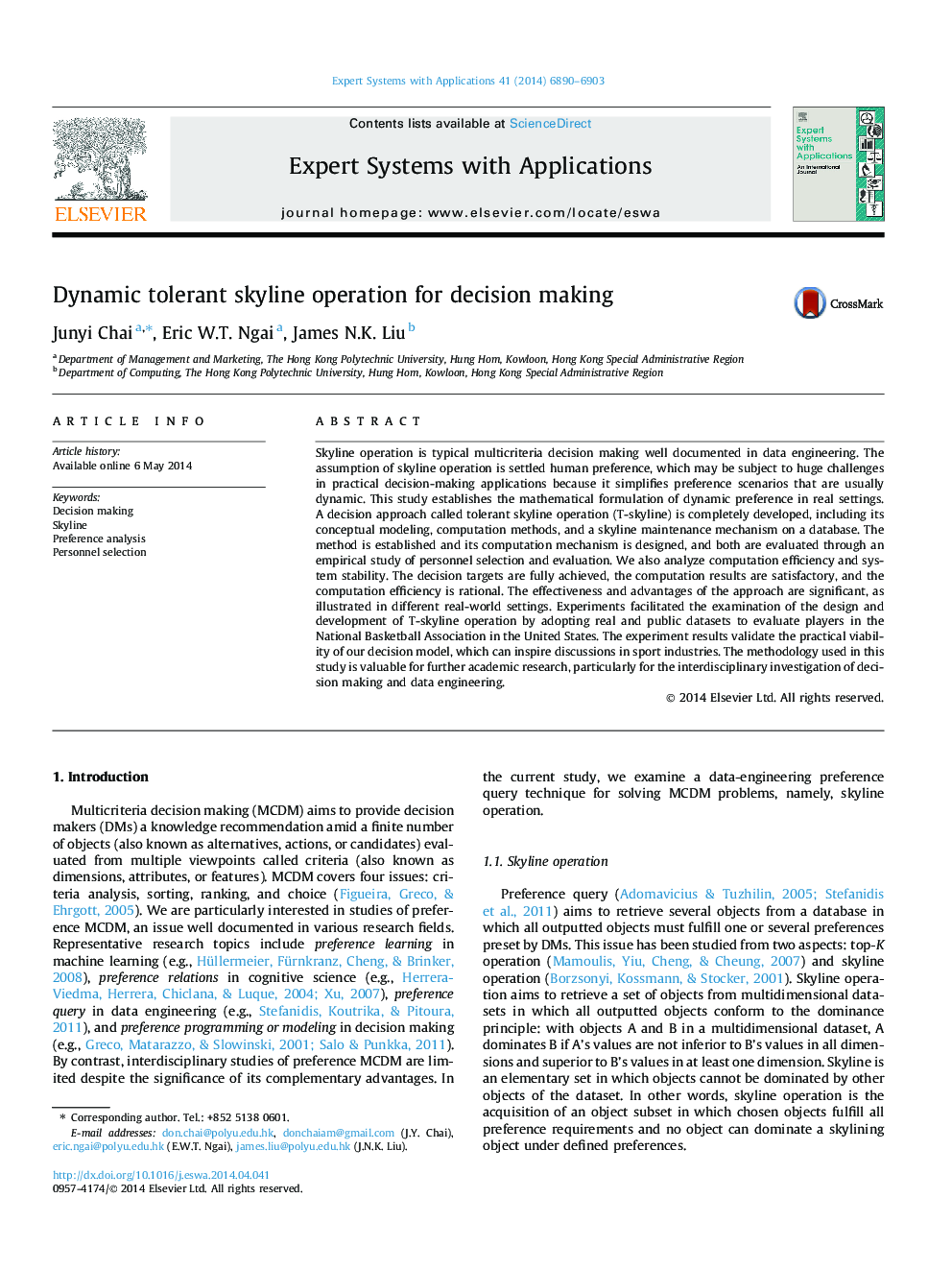| Article ID | Journal | Published Year | Pages | File Type |
|---|---|---|---|---|
| 382822 | Expert Systems with Applications | 2014 | 14 Pages |
•A novel tolerant skyline operation (T-skyline) under dynamic preference.•The mathematical formulation of dynamic preference in real settings.•The conceptual modeling, computation methods, and database maintenance mechanisms on T-skyline.•An empirical study of personnel selection and evaluation.
Skyline operation is typical multicriteria decision making well documented in data engineering. The assumption of skyline operation is settled human preference, which may be subject to huge challenges in practical decision-making applications because it simplifies preference scenarios that are usually dynamic. This study establishes the mathematical formulation of dynamic preference in real settings. A decision approach called tolerant skyline operation (T-skyline) is completely developed, including its conceptual modeling, computation methods, and a skyline maintenance mechanism on a database. The method is established and its computation mechanism is designed, and both are evaluated through an empirical study of personnel selection and evaluation. We also analyze computation efficiency and system stability. The decision targets are fully achieved, the computation results are satisfactory, and the computation efficiency is rational. The effectiveness and advantages of the approach are significant, as illustrated in different real-world settings. Experiments facilitated the examination of the design and development of T-skyline operation by adopting real and public datasets to evaluate players in the National Basketball Association in the United States. The experiment results validate the practical viability of our decision model, which can inspire discussions in sport industries. The methodology used in this study is valuable for further academic research, particularly for the interdisciplinary investigation of decision making and data engineering.
